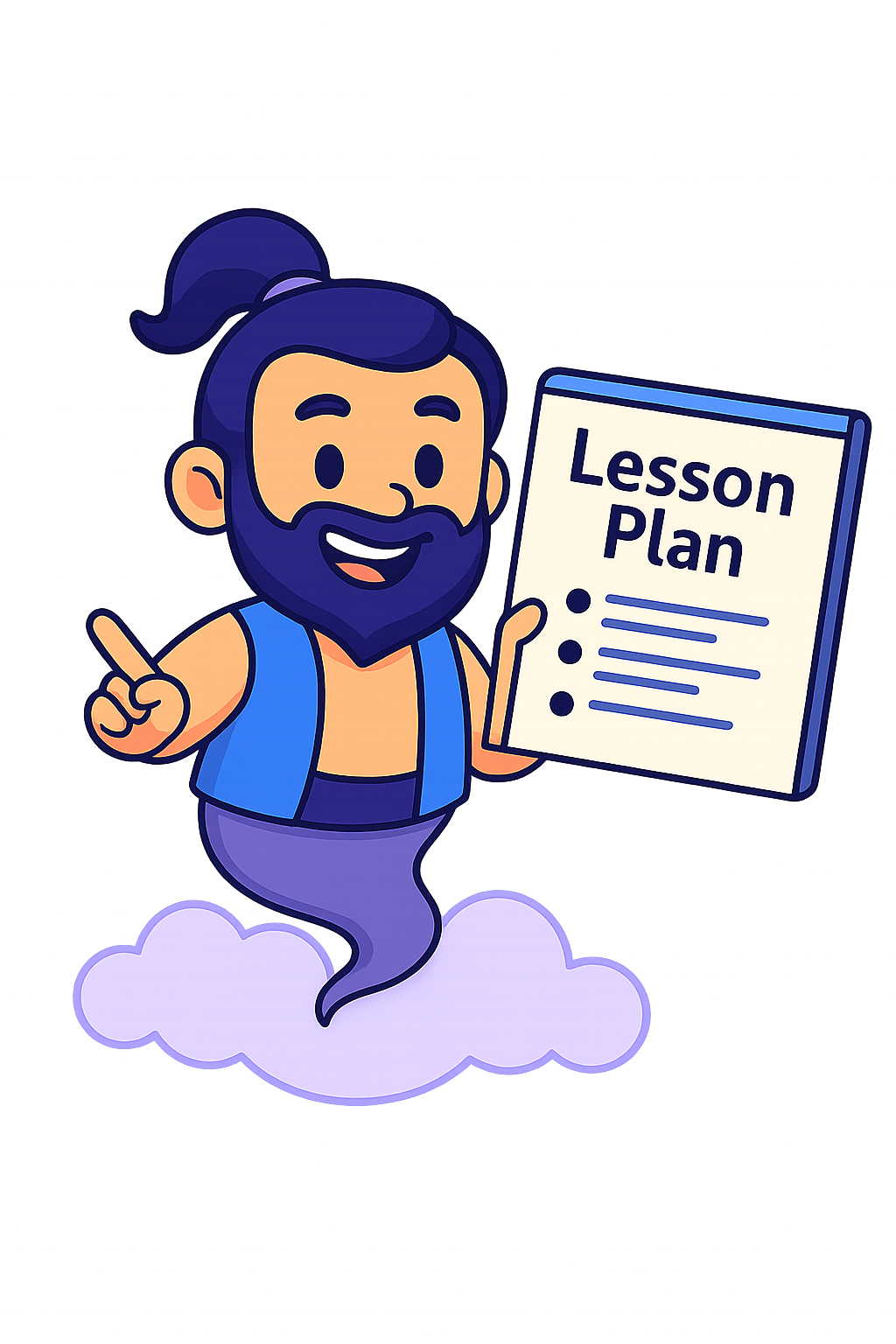 Recognizing and Producing Rhyming Words
Recognizing and Producing Rhyming Words
Objective: Students will be able to recognize and produce rhyming words to build phonological awareness, supporting early reading skills as outlined in standard K.RF.1c.
Learning Objectives
- Identify pairs of words that rhyme when spoken aloud.
- Generate at least three words that rhyme with a given word.
- Demonstrate understanding of rhyming through matching activities and drawing.
Materials Needed
- Picture cards with simple rhyming words (e.g., cat, hat, dog, log)
- Rhyming word chart
- Paper and crayons or markers
- Children’s rhyming storybook (optional)
Key Vocabulary
- Rhyme
- Words that have the same ending sound, like cat and hat.
- Sound
- The noise we hear when we say a word.
- Phonological Awareness
- The ability to hear and work with sounds in spoken language.
Detailed Activities
Introduction to Rhyming Words
- Explain that rhyming words sound alike at the end.
- Say a simple word aloud, such as ‘cat’, and ask your child if they know any words that sound like ‘cat’.
- Show picture cards of rhyming pairs and say the words together, emphasizing the rhyming sounds.
Rhyming Word Matching Game
- Spread out picture cards face up.
- Say a word and ask your child to find the picture card that rhymes with it.
- Celebrate correct matches and help with hints if needed.
Create Your Own Rhymes
- Choose a simple word like ‘dog’.
- Ask your child to think of words that rhyme with ‘dog’ and say them aloud.
- Help your child draw pictures of the rhyming words they thought of.
- If desired, read a rhyming storybook together highlighting rhyming words.
Parent & Instructor Notes
- Keep the tone playful and encouraging to build your child’s confidence with sounds.
- Use everyday moments, like during bath or car rides, to practice rhyming words.
- If your child struggles, slow down and focus on listening carefully to the ending sounds of words.
Assessment Questions
- Can you tell me two words that rhyme with ‘hat’?
- Which word rhymes with ‘dog’: log or cat?
- Can you think of a word that rhymes with ‘sun’?
Extension Ideas
- Write a simple rhyming poem together using your child’s rhyming words.
- Create a rhyming word collage with magazine cutouts or drawings.
- Sing nursery rhymes and emphasize the rhyming words.
Frequently Asked Questions
It’s normal for young learners to need repeated exposure. Use lots of examples, speak slowly, and make it fun. Rhyming skills develop over time with practice.
Short daily sessions of 5–10 minutes are effective. Integrate rhyming into daily routines to keep practice natural and enjoyable.
Teacher’s Guide
Common Misconceptions:
- Children may confuse rhyming words with words that start with the same sound.
- Some children might focus only on the last letter instead of the sound.
Scaffolding Ideas:
For Struggling Students:
- Use fewer words and focus on very clear rhymes with distinct sounds.
- Incorporate clapping or tapping to emphasize syllables and rhyming parts.
For Advanced Students:
- Challenge with longer rhyming words or creating silly rhymes.
- Encourage them to come up with rhymes for words in everyday conversation.
Pacing Recommendations:
- Spend extra time on the matching game if the child needs more practice.
- Move quickly through introduction if the child already recognizes rhymes, focusing on producing their own rhymes.
Standards
- K.RF.1c — undefined
Printable Worksheet
Plan Your Own Lesson
Looking for a custom lesson plan? Try our Lesson Planning Generator — create standards-based plans for any topic, instantly!
Common Core Aligned Lesson Plans
Looking for another common core lesson? See all of the lesson plans here.
More Free Lesson Plans
We’re adding more every week! Check back soon or explore all our lesson plans here.

 Recognizing and Producing Rhyming Words
Recognizing and Producing Rhyming Words
Leave a Reply